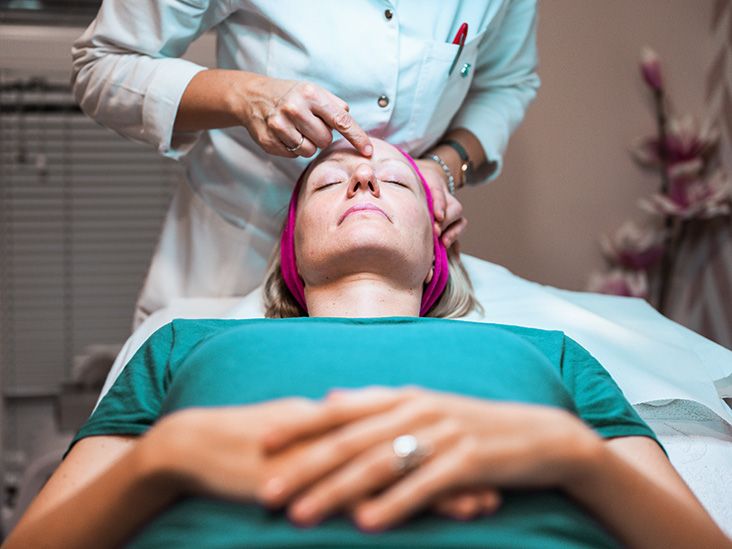Protect yourself from skin cancer risks and prevention methods.
Protect yourself from skin cancer risks and prevention methods.
Blog Article
Browsing Skin Cancer Cells Treatment: The Important Role of Mohs in Modern Dermatology Practices
Skin cancer cells, a complicated diagnosis, often leaves individuals grappling with countless treatment options. Amongst these, Mohs surgical procedure stands as a beacon in modern dermatology, renowned for its precise approach to cancer cells removal and preservation of surrounding healthy cells. This innovative method guarantees not just exceptional cosmetic outcomes yet additionally provides immediate results, reducing person stress and anxiety. As we discover the intricacies of this treatment, one will certainly appreciate its pivotal duty in skin cancer treatment.
Comprehending Skin Cancer Cells: Types and Risks
Skin cancer cells, a potentially lethal condition, is much more common than many individuals understand. This illness, caused by the uncontrolled development of unusual skin cells, largely results from DNA damages because of direct exposure to the sun and ultraviolet (UV) light. There are three major kinds of skin cancer: Basic cell carcinoma, Squamous cell carcinoma, and Cancer malignancy. While the former two are much less deadly and make up the bulk of identified cases, melanoma is the most hazardous. It accounts for just about 1% of skin cancer cells instances yet triggers the huge majority of skin cancer fatalities - chemical peel. Threat aspects include reasonable skin, background of sunburn, extreme sun exposure, living at high elevations or near the equator, having lots of moles, a family members background of skin cancer, and deteriorated body immune system.
What Is Mohs Surgical treatment and Exactly How It's Transforming Skin Cancer Cells Treatment
Regardless of the countless treatments currently offered for skin cancer, Mohs surgery stands apart as a groundbreaking and very efficient solution. Called after Frederic E. Mohs, the physician that established the procedure, Mohs surgical treatment is an accurate surgical method used to deal with skin cancer. Throughout the treatment, slim layers of cancer-containing skin are considerably gotten rid of and examined until only cancer-free cells remains. This approach permits the specialist to validate that all cancer cells have actually been gotten rid of at the time of surgery. This level of accuracy, integrated with the capacity to save as much healthy tissue as possible, is revolutionizing skin cancer treatment. Consequently, Mohs surgical procedure has actually come to be a foundation of modern dermatology techniques.
The Advantages of Mohs Surgical Procedure Over Typical Skin Cancer Cells Treatments
Building on the ingenious nature of Mohs surgery, it's crucial to consider its numerous advantages over traditional skin cancer therapies. Unlike guidelines, Mohs offers a click greater treatment price, frequently reaching 99% for newbie treatments and 94% for reoccurring cancers cells. This accuracy is due to its unique approach of progressively eliminating and checking out cells layers up until only cancer-free cells remain (chemical peel). Additionally, it lessens damage to healthy and balanced skin, bring about less scarring and boosted aesthetic end results. Mohs additionally gives prompt results, removing the anxiety-ridden wait typical with other methods. Lastly, it's economical, as the surgical treatment and microscopic exam take place concurrently, eliminating the need for extra lab solutions. Therefore, Mohs stands for a significant innovation in dermatological practices.
The Treatment of Mohs Surgical Treatment: What to Expect Throughout the Process

Possible Side Impacts and Post-Operative Treatment of Mohs Surgery
Going through Mohs surgical treatment, like any type of other operation, involves potential side impacts that individuals need to understand. Common side effects consist of pain, wounding, and swelling at the surgery site. However, these are normally momentary and convenient with non-prescription discomfort medication and ice packs. In rare instances, clients may experience infection, bleeding, or an allergy to the local anesthetic. Post-operative care is vital to recovery and minimizing adverse effects. This commonly includes keeping the wound tidy and completely dry, taking prescribed drugs, and avoiding difficult tasks. Patients should likewise participate in all follow-up visits for wound wikipedia reference care and tracking. In many cases, added therapies might be required to make certain complete removal of the cancerous cells. Sticking to these post-operative care standards can greatly enhance healing and end results.
Final thought

Report this page